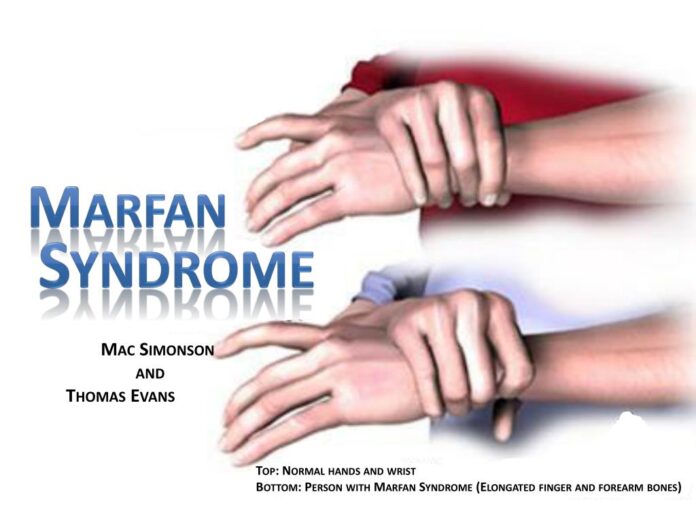Marfan syndrome is a genetic disorder that affects the connective tissue, which provides support to various structures in the body such as the bones, cartilage, heart, blood vessels, and other organs. Here’s an overview of its symptoms, causes, treatment, and prevention:
Symptoms:
- Tall and slender body type
- Long arms, legs, and fingers
- Flexible joints
- Scoliosis (curvature of the spine)
- Chest deformities such as pigeon chest or sunken chest
- Flat feet
- Stretch marks on the skin
- Eye problems like nearsightedness, dislocated lenses, or detached retinas
- Heart defects, including enlargement of the aorta, aortic dissection, or valve problems
Causes: Marfan syndrome is caused by a mutation in the gene that controls the production of fibrillin-1, a protein that is essential for the formation of connective tissue. This mutation is usually inherited from one parent who has the syndrome. However, in some cases, it can occur spontaneously.
Treatment: Treatment for Marfan syndrome focuses on managing symptoms and preventing complications. It may include:
- Regular monitoring of the heart and aorta to detect and manage any potential issues early.
- Medications such as beta-blockers or angiotensin II receptor blockers to reduce the strain on the heart and lower blood pressure.
- Surgery to repair or replace damaged heart valves or aortic aneurysms.
- Bracing or surgery to correct skeletal abnormalities such as scoliosis.
- Eye exams and corrective lenses to address vision problems.
- Physical therapy to improve joint function and strength.
Prevention: Since Marfan syndrome is a genetic disorder, it cannot be prevented entirely. However, early diagnosis and management can help prevent or minimize complications associated with the condition. Genetic counseling may be recommended for individuals with a family history of Marfan syndrome to assess the risk of passing the condition to future generations.
Overall, a multidisciplinary approach involving various medical specialists such as cardiologists, orthopedists, ophthalmologists, and genetic counselors is essential for the comprehensive management of Marfan syndrome.

































